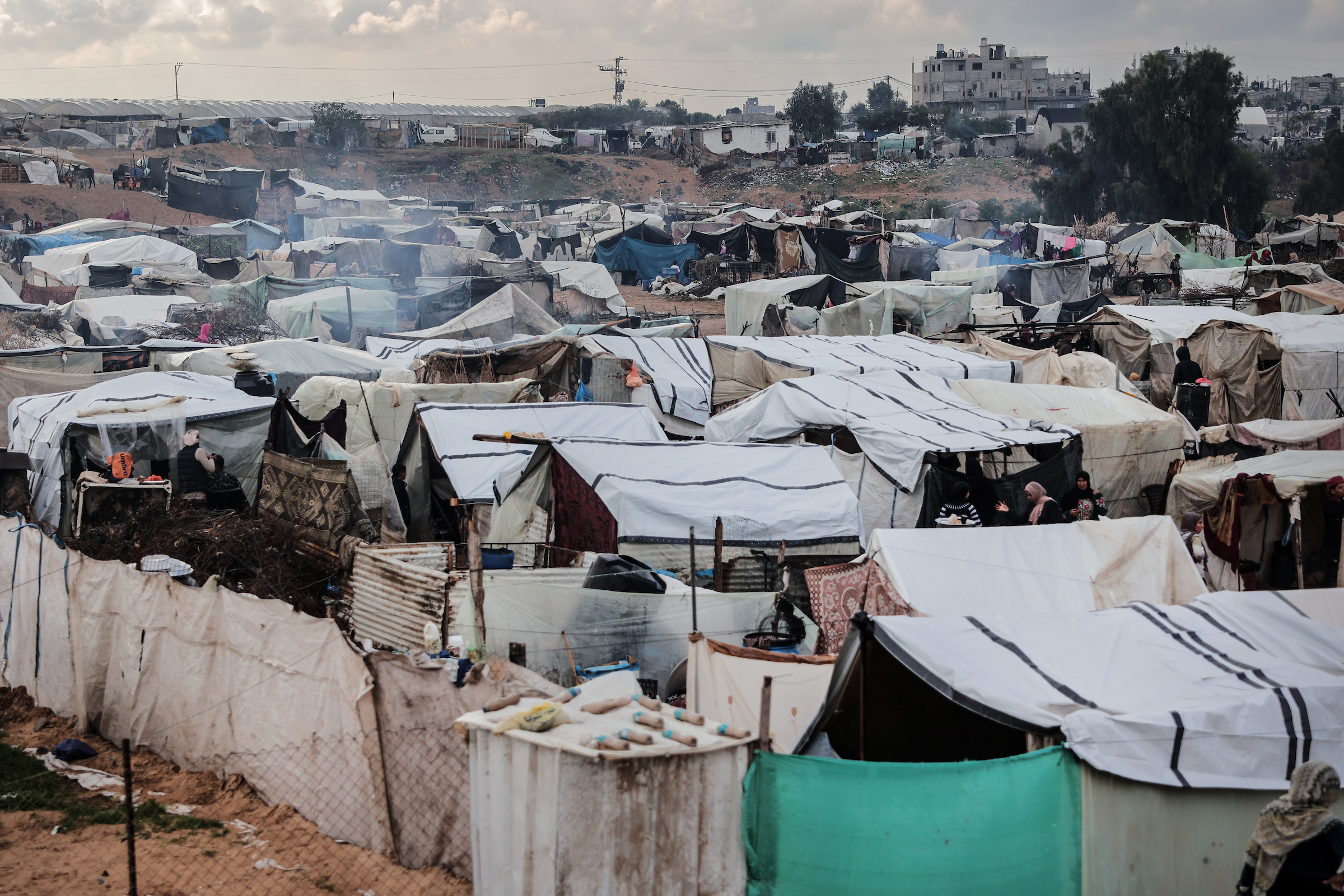

Urgent Appeal
Palestinian Human Rights Organizations Warn of Attack on Rafah and Calls for Action to Prevent ongoing Acts of Genocide and New Nakba Before It is too Late
The Palestinian human rights organizations warn of Israeli Occupation Forces (IOF) expanding their ground attack on Rafah that will fall under IOF’s genocidal acts ongoing for 120 days in the Gaza Strip. Our organizations believe that the latest statements by the Israeli war leaders and the phasing of Israeli attacks herald an imminent attack on Rafah similar to what is being carried out in Khan Younis and across the Gaza Strip. This would inevitably lead to more loss of Palestinian lives that will be unprecedentedly huge as Rafah is crowded with hundreds of thousands of displaced civilians, and mass displacement of Palestinians will be imposed as a fait accompli, unfolding a new Nakba for the Palestinian people.
Our organizations indicate that at least 100,000 Palestinians have been killed, injured or missing during the Israeli ongoing aggression on the Gaza Strip, about 5% of the total population in the Gaza Strip outpacing the number of casualties in previous wars in modern history. Rafah has become refuge for vast number of people who were forcibly displaced from across the Gaza Strip as a result of deliberate bombardment by air, sea and land against entire residential neighborhoods as well as shelters, hospitals, civilian public and private facilities along with military orders for the residents to evacuate to the south.
Amid ongoing Forced displacement, thousands of displaced people continue to flee from areas that had been dubbed by IOF safe, including Khan Younis and Central Gaza Strip, to Rafah, which is crowded with hundreds of thousands of displaced persons mainly located in western Rafah, that has been clearly marked on all maps published by IOF as the only safe zone. Thousands of tents have been set up in Rafah to shelter those displaced enduring unimaginable deteriorating humanitarian conditions. Estimates imply that at least 1.5 million of Gaza’s total 2.3 population are mainly sheltering in Rafah.
Although Rafah was not spared bombing since the beginning of the war as it was under air, sea and land attacks that have affected houses and civilian objects; the latest was today at dawn when IOF bombed two houses killing 17 Palestinians, mostly children and women, notwithstanding that so far, no full-scale ground invasion has been conducted in Rafah, similar to what happened in the rest of the Gaza Strip.
Our organizations (Palestinian Centre for Human Rights, al-Mezan Centre for Human Rights and al-Haq) believe that the Israeli Defense Minister’s latest statements from Khan Younis saying “we will reach also Rafah” as well as the continuous threats to take full control of the borders between Rafah and Egypt and the ongoing bombardment of eastern Rafah clearly signal an imminent attack on Rafah.
Our organizations emphasize that the Israeli attack on Rafah would be the most intensive against the Gaza Strip, inflicting further killings and injuries among civilians and forcing them to flee to the south towards the Egyptian border, which is only tens of meters away. This will lead to a new Nakba for the Palestinian people and render it as a fait accompli.
Our organizations warn the international community, particularly the Permanent Members of the Security Council, the Secretary-General of the United Nations, the Prosecutor of the International Criminal Court and the High Commissioner for Human Rights, against the serious situation in the Gaza Strip and urge them to take prompt measures to prevent a new Nakba in Palestine and stop genocide in the Gaza Strip.
Our organizations caution Israel’s allies implicated in complicity with genocide through their unwavering military and political support to the Israeli occupation or through their silence. We urge them to fulfill their legal obligations before it is too late and to take action in order to protect the Palestinian civilians, cease mass killings and ensure end of genocidal acts that have been ongoing for 4 months.